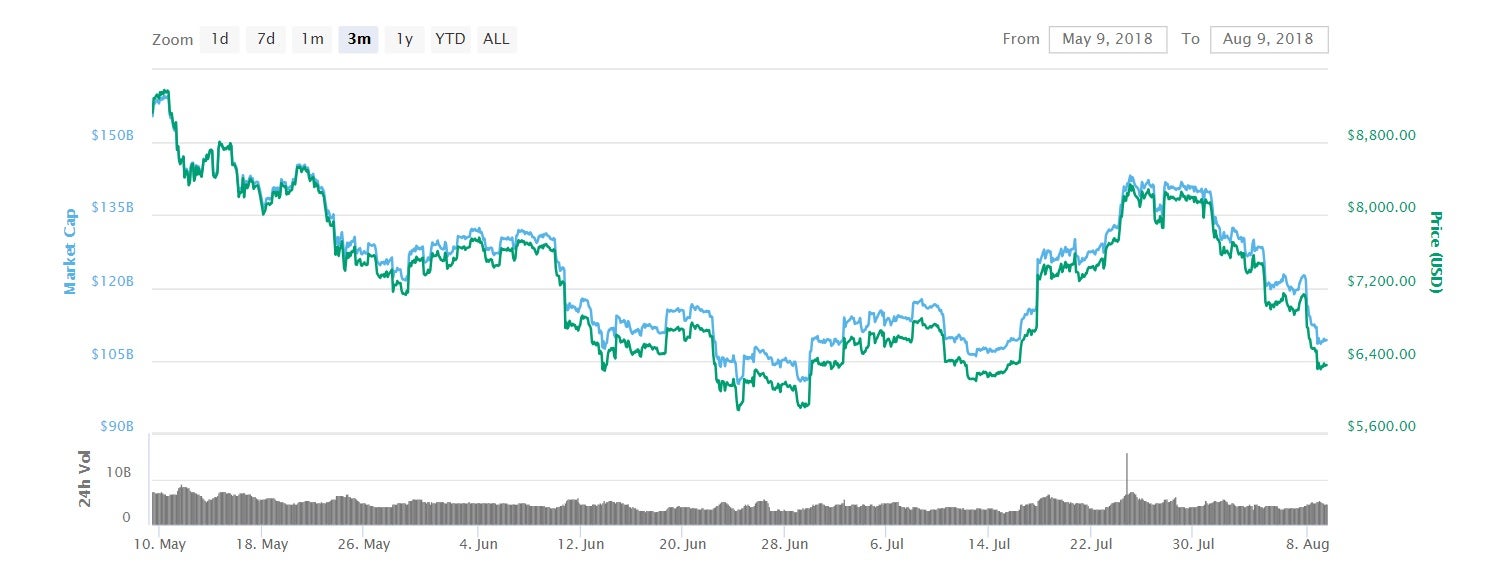Bitcoin: The best time to buy the cryptocurrency, according to economists
Yale economists designed a simple strategy to generate 'outstanding returns' from bitcoin, ethereum and ripple
Economists from Yale University have come up with a technique to predict the price of bitcoin based on the cryptocurrency's past behaviour.
The notoriously volatile cryptocurrency has fluctuated between $6,000 and $9,000 over the last few months, with its current value hovering around $6,343, however there patterns within these market movements.
Yukun Liu and Aleh Tsyvinski analysed seven years of bitcoin price data to figure out which indicators can be used to determine the future price of bitcoin. The Yale economists also studied ripple and ethereum to see whether other cryptocurrencies followed the same price patterns as bitcoin.
Their findings, published in The National Bureau of Economic Researh, established that bitcoin and other cryptocurrencies are entirely distinct from stocks, currencies and other commodities in terms of factors affecting their market movements.
"In contrast, we show that the cryptocurrency returns can be predicted by factors which are specific to cryptocurrency markets," the study explains.
"Specifically, we determine that there is a strong time-series momentum effect and that proxies for investor attention strongly forecast cryptocurrency returns."
This momentum effect was found to strongly affect cryptocurrency, meaning that if bitcoin is performing well then it is likely to continue doing so, at least in the short-term.
The economists designed a "simple strategy" that investors could follow to take advantage of this trend. According to the strategy, an investor should buy bitcoin if its value increases more than 20 per cent in the previous week.
"This strategy generates outstanding returns," Tsyvinski told Yale News.

The economists also calculated that there is a 0.3 per cent chance that the value of bitcoin will fall to zero and become useless. This may seem very small, however it is still several degrees of magnitude higher than traditional currencies like the euro (0.009 per cent chance) and the Australian dollar (0.003 per cent chance).
The end of the study addressed the question of how much a typical investor should hold in bitcoin and cryptocurrencies, concluding that it should be between 1 per cent and 6 per cent.
"Of course, one has to remember that, as with any other assets, past performance is not a guarantee of future returns," Tsyvinski said.
"Maybe cryptocurrency will completely change its behavious, but currently the market does not think it will."
Join our commenting forum
Join thought-provoking conversations, follow other Independent readers and see their replies
Comments
Bookmark popover
Removed from bookmarks